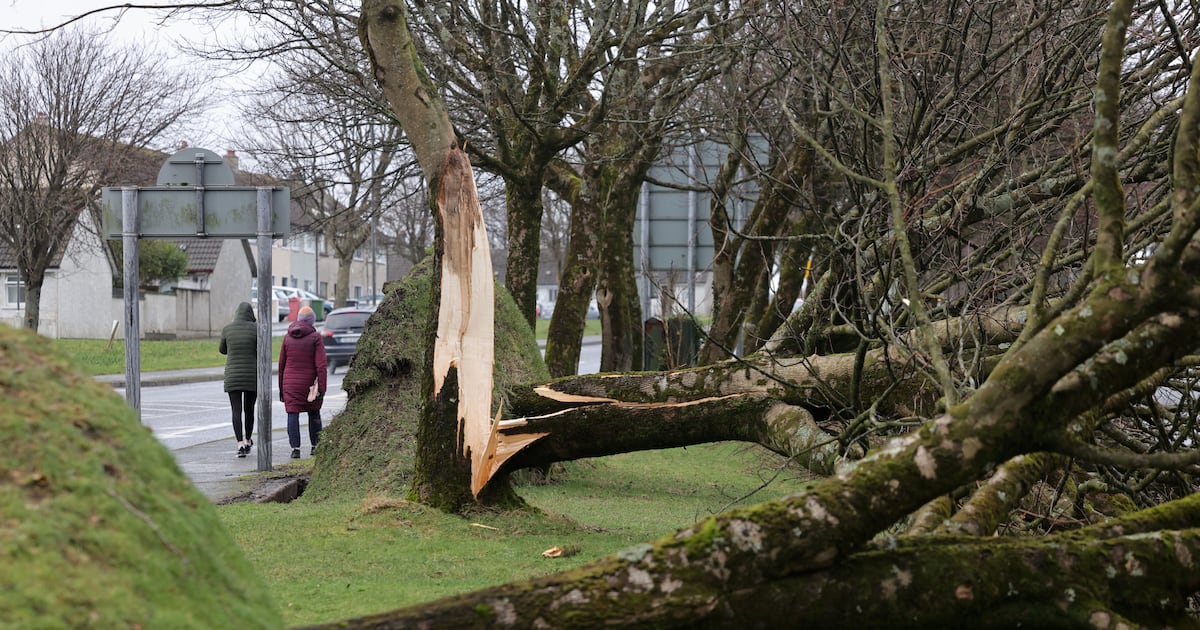Breaking News
Ireland unprepared for another Storm Éowyn as season of extreme weather looms

Read more on post.
Plans to scale up the response to extreme weather events such as Storm Éowyn have not been finalised even as a new storm season approaches.
The Climate Change Advisory Council (CCAC) has criticised the delay, saying last January’s storm and its immediate predecessor, Storm Darragh, exposed “significant shortcomings” in how State agencies and services managed the widespread impacts.
It expressed disappointment that an all-of-Government review of the Storm Éowyn response was overdue and said preparations were needed urgently before another storm of that magnitude hits Ireland.
The CCAC’s comments come in its annual review of Ireland’s climate adaptation capacity.
It examines how prepared the country is to deal with the now-unpreventable impacts of climate change, such as increasingly severe storms, more intense flooding and loss of coastal land.
Prof Peter Thorne, chair of the CCAC’s adaptation committee, said not enough “tangible action” was being taken.
“With extreme weather events continuing to increase in both magnitude and frequency, communities throughout Ireland must be better protected from their devastating impacts,” he said.
“These storms have exposed our vulnerability and the critical shortcomings in our preparedness and response systems.”
Storm Éowyn’s record-breaking winds caused extensive damage that left 768,000 properties without electricity, 200,000 without water and 1 million without phone or broadband.
[ Storm Éowyn costs ESB €100m in network repairsOpens in new window ]
The CCAC urged immediate action to ensure readiness for a repeat event.
This included establishing emergency response hubs – regional facilities pre-stocked with essential equipment and humanitarian supplies to avoid a scramble to find items such as generators and bottled water after an event.
A permanent, well-funded extreme weather assistance scheme for households and small businesses is recommended instead of the ad hoc arrangements used to date.
The CCAC also said next week’s budget must increase the “grossly inadequate” climate funding for local authorities so they can create permanent positions for climate action teams and improve local adaptation planning.
Minister for Housing James Browne announced the review of the response to Storm Éowyn days after it passed, with initial indications that it would be completed by the summer.
Earlier this month, he said it was anticipated that the review findings would be available “shortly”.
The CCAC report also comments on the wider challenges of climate change adaptation and is critical of the “silo” approach of Government departments and agencies.
It says while each department has its own adaptation plan, policies lack specifics and results are not measurable.
The National Coastal Change Management Strategy was published two years ago and agreed on three so-called pathfinder projects to investigate what protection measures were feasible, but there is “no clear timeline for delivery” of this work.
Critical infrastructure is not sufficiently resilient and there is a shortage of skilled repair staff, it said.
Better localised early warning systems to protect lives and property at town and village level are also urged.
The report also said the insurance industry should incentivise climate-smart decisions such as moving critical equipment to higher floors and supporting “build back better” approaches that made properties more resilient to the next extreme weather event.









